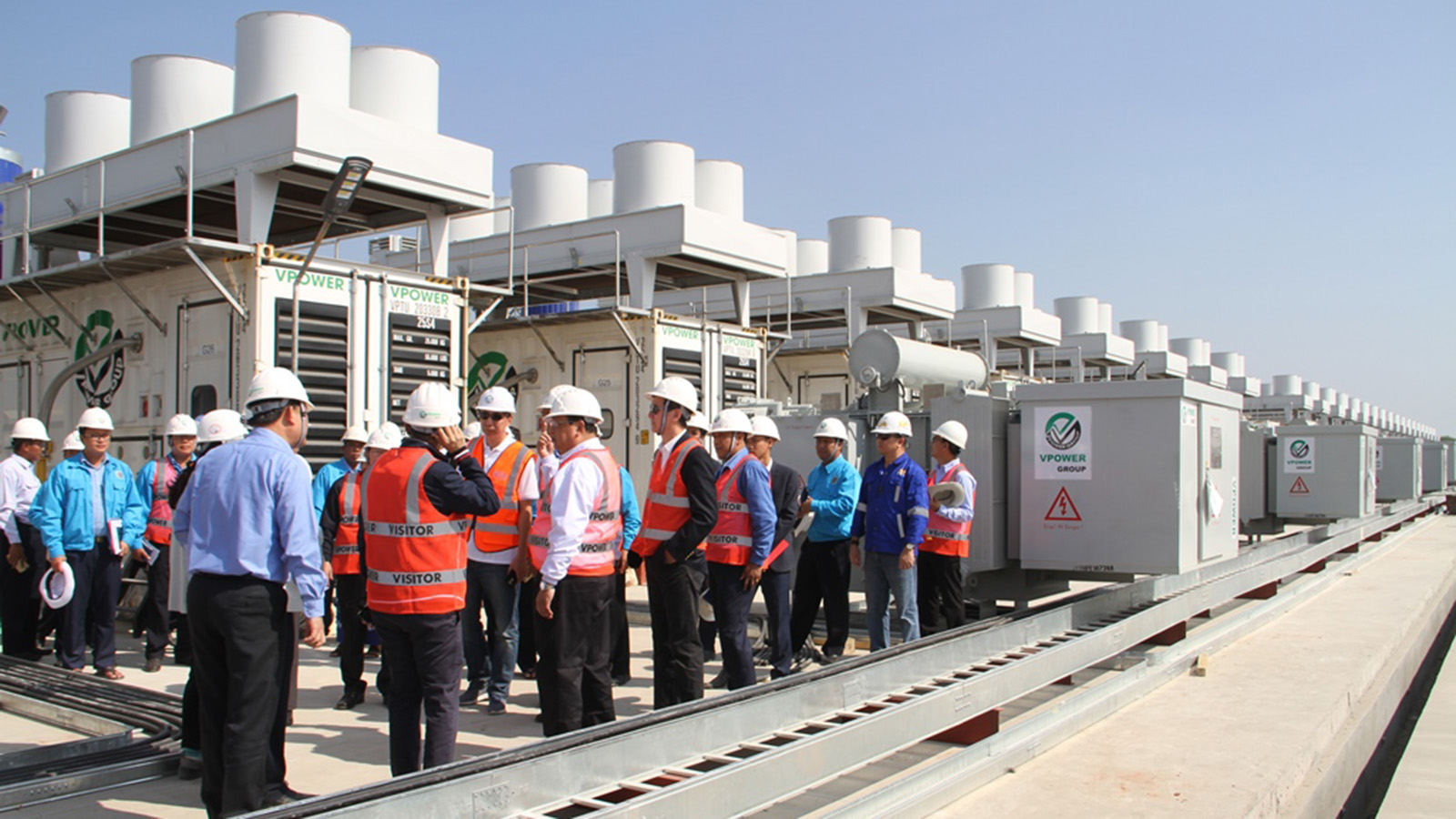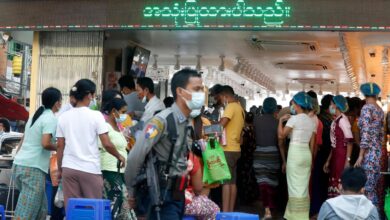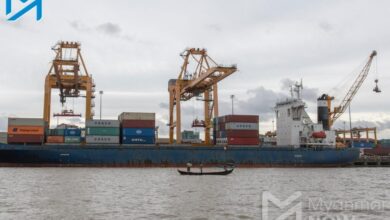
A Hong Kong-listed power generation company has pulled out of two power station projects in Myanmar after facing “challenging times” amid economic turmoil caused by the February 1 coup.
VPower Group said in its half year results last week that it will not be renewing the contracts for two of the nine power stations it has a stake in across the country. It did not say which two projects it was pulling out of or give a specific reason for the decision.
The latest list of contracts disclosed by VPower no longer names the Kyauk Phyu II project in Rakhine State and Myingyan I project in Mandalay Region, which were previously mentioned in its 2020 annual report.
After “political events and social unrest” in February, the company dusted off its contingency plans to protect the safety of its employees and keep its power stations running amid “challenging times,” VPower said.
Although things had become “relatively stable” by late June, the company decided not to renew the contracts “after careful consideration and negotiations with the relevant parties,” it added.
Both power stations are fully owned by VPower and can produce a total of just under 200 megawatts between them. The contracts expired in March and June this year.
The Ministry of Electricity and Energy did not respond to a request for comment.
VPower does business across Asia, South America and Europe, but Myanmar is its biggest source of revenue. In 2020 it made $59.2m in the country, accounting for 13.5% of total sales for its Invest, Build and Operate (IBO) business.
Despite the fallout from the coup, the company made $31.6m in Myanmar in the first half of 2021, accounting for 12.3% of its IBO revenues.
VPower still has a stake in seven power projects in Yangon, Kyauk Phyu, Myingyan, and Pakokku.

Four of these projects are fully owned by VPower, while the remaining three are joint ventures with the Chinese state-owned industrial group China National Technical Import & Export Corporation (CNTIC).
VPower was co-founded in 2001 by Samson Lam and Jason Lee. It floated on the Hong Kong Stock Exchange in 2016, but Lam remains the majority shareholder with a stake of over 68%.
Chinese state-owned conglomerate CITIC Group, which won a bid to develop the $7.3bn Kyauk Phyu deep water port, is a major investor in VPower.
VPower has forged close partnerships with two other Chinese state-owned groups, CNTIC and CRRC, a rolling stock manufacturer. Both groups are active in countries where China is investing in large infrastructure projects as part of its Belt and Road Initiative.
VPower’s natural gas terminal in Thilawa, co-owned with CNTIC, was built on land leased from Myanma Economic Holdings Limited (MEHL), a military conglomerate.
Advocacy group Justice For Myanmar has said that through the Thilawa project VPower is helping “to finance the atrocity crimes the military is committing against the people of Myanmar.”
Numerous foreign investors have pulled out of Myanmar or reduced their exposure to the country since the military’s power grab.
Earlier this month the Australian mining company Myanmar Metals confirmed its exit from the Bawdwin mine in Shan State, which is rich in deposits of silver, zinc and copper, citing an “unstable operating environment.”
VPower did not respond to a request for comment.



